Physical Address
304 North Cardinal St.
Dorchester Center, MA 02124
Physical Address
304 North Cardinal St.
Dorchester Center, MA 02124
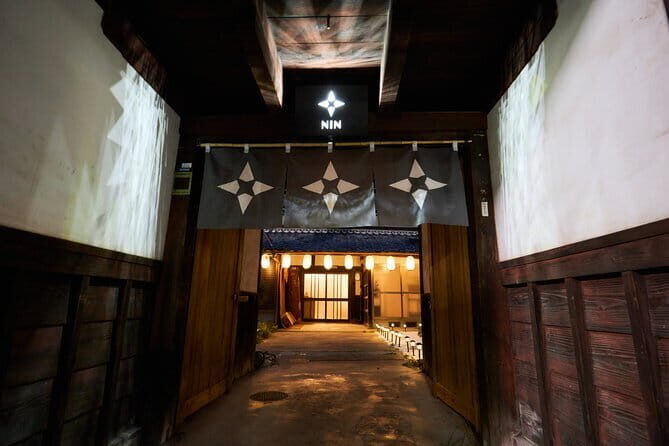
Experience authentic ninja weapon-making in Kyoto with a hands-on workshop creating shuriken or kunai, guided by skilled instructors in a traditional Machiya setting.
Stepping into Kyoto’s ninja weapon-making workshop offers a unique blend of hands-on craftsmanship and culture. Hosted in a hundred-year-old Machiya—a traditional Kyoto townhouse—the experience allows you to craft real ninja weapons like shuriken or kunai under the guidance of passionate instructors. It’s a memorable activity that appeals to those curious about Japan’s legendary ninja history, or simply looking for an engaging, authentic souvenir-making session.
What we love most about this experience is how interactive and personalized it is. From selecting your weapon type to customizing your design, every step feels thoughtfully designed. Plus, the chance to practice throwing your finished weapon adds a fun, action-packed layer. However, one thing to consider is that import regulations vary by country, so if you plan to bring your ninja weapon home, it’s wise to check customs rules beforehand.
This workshop suits travelers eager for a cultural craft, families with older children, or anyone wanting a tangible connection to ninja lore. If you’re looking for a fun, educational activity that results in a unique keepsake, this experience fits the bill perfectly.
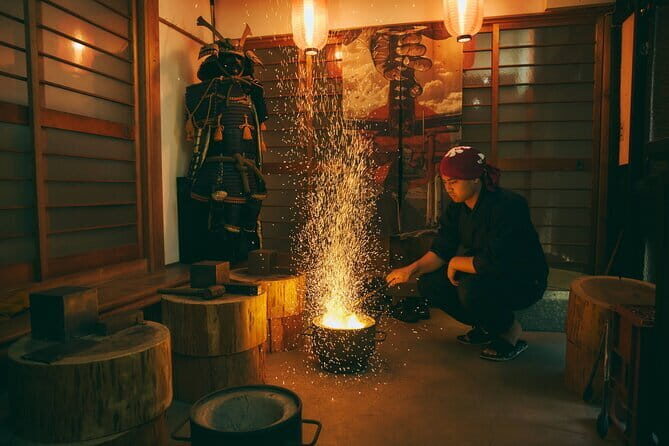
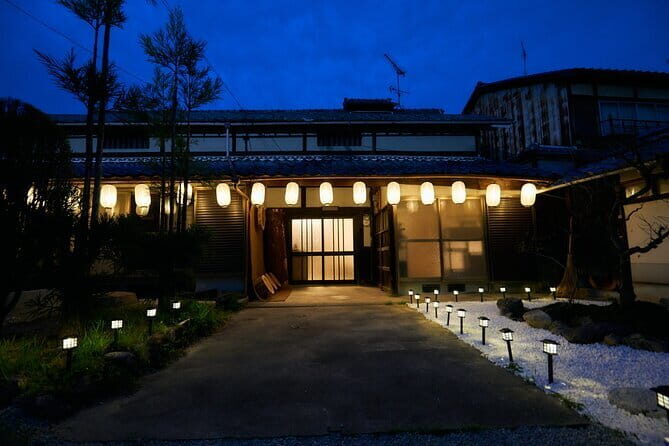
Looking for more options in Kyoto? Here are some other experiences worth considering.
Your adventure begins at studio NIN16 Shgakuin Daidch, nestled in Sakyo Ward, Kyoto. The location, accessible by public transportation but off the main tourist track, offers a peaceful environment that feels worlds away from bustling city streets. The studio is housed in a charming Machiya, over 100 years old, with a quiet, historical charm that immediately transports you into Japan’s traditional past.
Once you arrive, you’ll be greeted by enthusiastic staff who will provide a uniform to wear for the workshop—a fun touch that makes you feel like a craftsperson rather than a tourist. The instructors, many of whom speak English well, explain the process clearly, though some reviewers noted that directions could be a bit vague at times. Still, the instructors’ passion and energy make up for it.
The core choice here is between shuriken (throwing stars) or kunai (dagger-shaped tools). The basic cost covers making a shuriken, but crafting a kunai involves an additional fee of 3,000 yen. This option is great for those wanting a bit more challenge or a different kind of souvenir.
The heart of the experience is shaping and assembling your weapon. Expect to receive step-by-step guidance on how to work with the provided tools—files, hammers, and tempering equipment. You’ll learn about sharpening and tempering the iron to produce high-quality steel, giving your weapon real functionality and durability.
One reviewer mentioned that the process involves hitting and shaping metal pieces, which can sometimes seem quick or superficial, especially during busy times when the activity might feel more like a “conveyor belt.” Still, many appreciated the personalization aspect, where you can add a unique pattern to your weapon, making it truly your own.
After crafting, you’ll have the chance to practice throwing your ninja weapon, an interactive highlight that adds a playful element. The instructors happily demonstrate proper technique, and you can capture some exciting action shots. The two lush gardens on-site provide a tranquil backdrop for photos, making the activity not just about creating but also about soaking in the peaceful environment.
Your finished weapon is placed in a beautiful box and bag, ready for you to take it home—whether in your checked luggage or carry-on, depending on local regulations. This is a huge plus, as many reviews mention how satisfying it was to walk away with a custom-made ninja tool as a tangible souvenir.

With a maximum of 15 travelers, the workshop maintains an intimate atmosphere. Participants have reported that the session can be extended if there are many participants, which is helpful during busy periods. The entire experience lasts approximately 2.5 hours, starting at 6:30 pm—perfect for an evening activity after sightseeing.
At $163.67 per person, this activity might seem pricey at first glance. But when you factor in the craftsmanship, personalized guidance, and the souvenir you’ll take home, many find it well worth the cost. Several reviewers emphasized the educational aspect and the skill level of the instructors, which made the experience more meaningful than a simple tourist activity.
Transportation isn’t covered, so you’ll need to plan to get there via taxi or public transit. The studio’s off-the-beaten-path location suggests calling a taxi might be the easiest route, especially if you’re carrying a crafted weapon afterward.
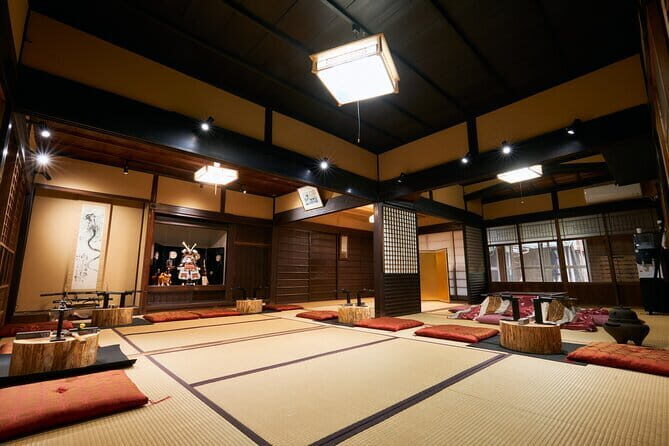
Many visitors have highlighted how authentic and well-guided the experience is. One reviewer praised the “incredibly skilled and passionate” instructors, while others appreciated the friendly and energetic hosts. Several mentioned that the process of shaping and coating their weapons felt educational and engaging, making the activity more than just a craft session.
Some critiques include vague directions prior to the experience, but most agree that the helpful staff and hands-on approach quickly made up for it. The small group size ensures that each participant gets enough attention and the chance to ask questions.
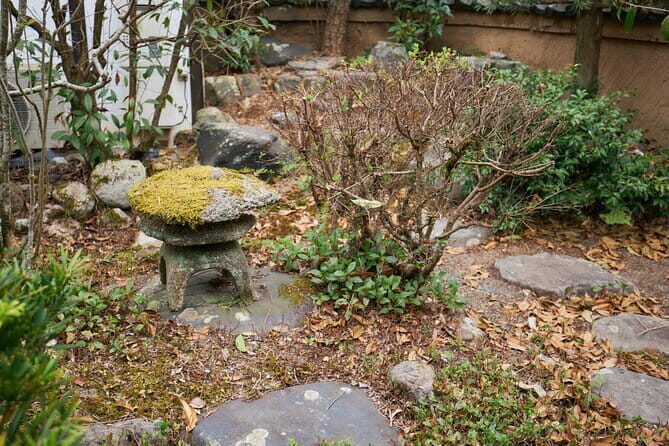
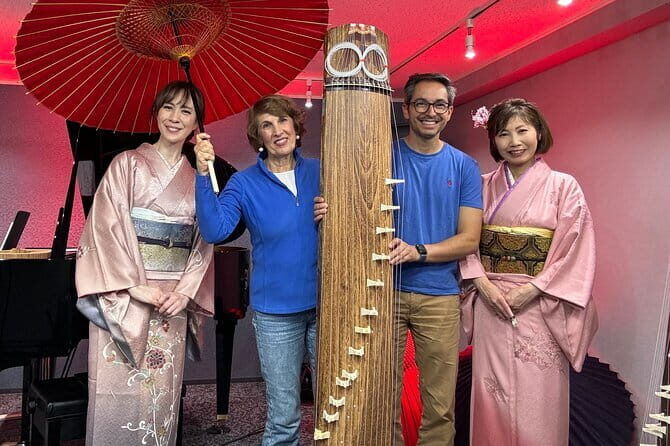
The Authentic Ninja Weapon Making Experience in Kyoto offers a rare chance to learn about Japan’s ninja history while actively participating in a traditional craft. The blend of expert guidance, historical ambiance, and the thrill of making your own weapon makes it stand out among typical tourist activities. Whether you’re a history buff, a craft lover, or simply after an unusual souvenir, this tour delivers a memorable, hands-on experience.
Though the cost might seem significant, the value lies in the craftsmanship, personal attention, and the opportunity to create something truly unique. The on-site gardens and engaging instructors help elevate the activity from a simple workshop to a genuine cultural encounter.
If you enjoy interactive, educational, and memorable adventures—especially ones you get to keep—this ninja weapon-making session is an excellent choice. It’s particularly suited for families, groups of friends, or solo travelers looking to add a distinctive, hands-on story to their Kyoto trip.
“Very enjoyable and helpful staff. The instructors English was fine. We had a great time and would recommend to our friends.”
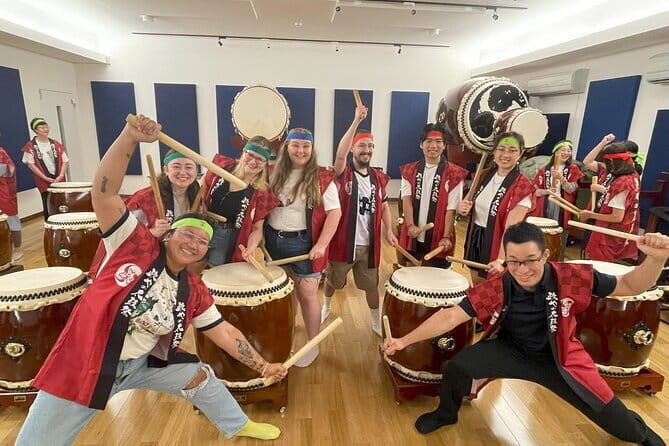
Is the workshop suitable for children?
Older children and teenagers will likely enjoy the activity, especially those interested in ninja lore or crafts. However, because shaping metal and tempering involve some physical effort, check age restrictions or consult with the provider if unsure.
How long is the experience?
The session lasts about 2 hours and 30 minutes, starting at 6:30 pm. The timing may be extended if more participants join, ensuring everyone gets enough hands-on time.
What should I wear?
Comfortable clothes suitable for light physical activity are recommended. The studio provides uniforms for participants, adding a fun, authentic touch.
Can I bring my ninja weapon home?
Yes, your finished weapon is placed in a box and bag, making it easy to pack into your luggage. Keep in mind customs regulations, as some countries restrict importing weapons like shuriken and kunai.
Is the location easy to find?
The studio is in a less touristy area in Kyoto, so calling a taxi is recommended. Directions are not overly detailed, but staff are helpful if you call ahead.
Can I choose between different weapons?
Yes, you can opt for a shuriken or kunai. The basic fee covers shuriken, while kunai involves an additional charge of 3,000 yen.
What makes this experience stand out?
The authenticity of the setting, the quality guidance from passionate instructors, and the opportunity to actually practice throwing your weapon make this activity truly special. Many reviewers highlight how personalized and memorable it is.
This ninja weapon-making workshop is a rare chance to engage with Japan’s ninja legacy in a meaningful, craft-oriented way. Whether for a stand-alone activity or part of a Kyoto adventure, it offers a blend of education, fun, and tangible souvenirs that you’ll cherish long after your trip ends.